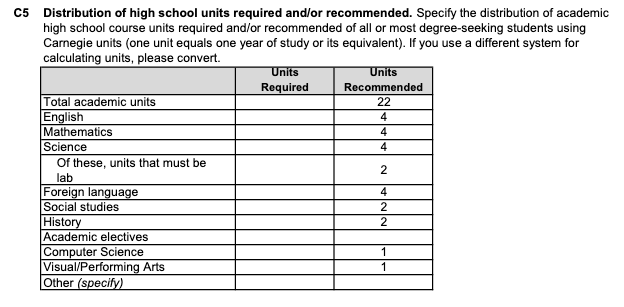After the College Early Admission Result: What Next?
Last Updated on November 12, 2024 by Jill Schwitzgebel
As early admission decisions begin to roll in this month, it’s a good time to review what happens next in the admissions process. The most important consideration for next steps is

Let’s begin with what happens when your student receives the good news that you’ve all been waiting for:
Early Action Acceptance
If your student has been accepted to a college as an Early Action applicant, you may be able to just sit back and enjoy the good news! The enrollment deposit won’t be due until May 1st. If this is your child’s first choice, you may be tempted to send in that deposit immediately. But, I would recommend at least waiting until you also receive the financial aid package. In the case of Early Action, it is possible that won’t be until the spring. You can always contact your college admissions representative and ask them about the timeline, if it becomes important to know.
If you do decide to go ahead and deposit early, that deposit is refundable up until May 1st. When paying a deposit, you agree that you will not pay enrollment deposits to multiple colleges. So, you must notify a college to which you have paid a deposit when you plan to submit an enrollment deposit elsewhere, and they will refund your deposit. But, I will warn you that it could take a little time.
There IS a time when you may decide it’s best to send in an enrollment deposit early – for students attending large state universities, their acceptance might come with a warning about housing shortages. Therefore, families will be encouraged to make a housing deposit immediately to ensure that their student will be able to get on-campus housing. On-campus housing may be distributed on a first-come, first-served basis, which means that if you want your student to be guaranteed housing on campus, you will likely want to send in a housing deposit sooner, rather than later. And generally, housing deposits are not accepted until the college first receives the enrollment deposit.
To complicate things, enrollment deposits are refundable, housing deposits typically are not. So, if something changes and your student decides to attend a different college, you will get the enrollment deposit back (if it’s prior to May 1), but likely you would forfeit that housing deposit.
See also: Things To Do After Receiving Your College Acceptances
Early Decision Acceptance
An Early Decision acceptance is considered to be a binding commitment. The only way to withdraw from that commitment is if the financial package that you are offered is insufficient. If a student applied as an Early Decision applicant though, hopefully you will have spent some time with the college’s Net Price Calculator prior to when your student applied, so that there are no surprises there. You will typically receive your financial aid package at the same time as the acceptance, or shortly thereafter.
Now, presuming that the financial offer lines up as expected, your student’s next step is to withdraw their regular decision applications from other colleges. Then, you should note the college’s next steps for formally enrolling, including the enrollment deposit deadline, which will be earlier than May 1.
If you’ve crunched the numbers, and really feel that you can’t make the finances work for your family, then the next step is to file a financial aid appeal with the college. Colleges like having students locked in via Early Decision, so there is a good chance they may find a way to make the finances work. If you do wind up having to turn them down however, your student can always ask to be considered again during the Regular Decision round, although it’s unlikely. (Keep in mind that they are not likely to receive a better financial offer at that point, either.)
Deferrals
Receiving notice of a deferral for early admissions is frustrating for students (and their parents). They have not been accepted, but they have not been denied either. A deferral means that the student’s application will be considered again during the Regular Decision round. And remember, that’s not terrible news – there is a second chance here. The college is just waiting to see what their regular decision applications look like before making a decision. There is no doubt that this is a stressful situation for teens, particularly if this was the first choice college.
There are a few things that students can do if they are in this situation. First, read the deferral letter to see if there are steps that the student must take. The college might ask for midyear grades, they might ask for another letter of recommendation, or they might just want an email confirming that the student is still interested. Even if the college doesn’t say explicitly that the student needs to submit anything, it is a good idea to reach out anyway. If the student has strong first semester grades or has won any awards or scored higher on the SAT, then be sure to let the college know that. Even if there isn’t new information to add, it is helpful for the student to reach out to their admissions counselor to express disappointment and reiterate their continued interest.
After a deferral, it’s also important to carefully evaluate the other schools that are on your student’s list and be sure that they submit applications to other colleges for their Regular Decision round.
Early Admissions Denials
It happens, unfortunately. And, if a student is likely to be overly discouraged by a rejection, I always strongly recommend that they skip applying in the early admissions round, for this reason. After an early denial, it is really important that the student is able to bounce back and continue with the application process. Hopefully, they have already sent in some regular decision applications as back-ups, but if not, now is the time! It’s also a good idea to look objectively at the student’s college list again, just to be certain that there are a couple of schools where the student is likely to be happy and also likely to be admitted, based on their profile.
See Also: How Do Rolling Admissions Work? What You Need to Know









